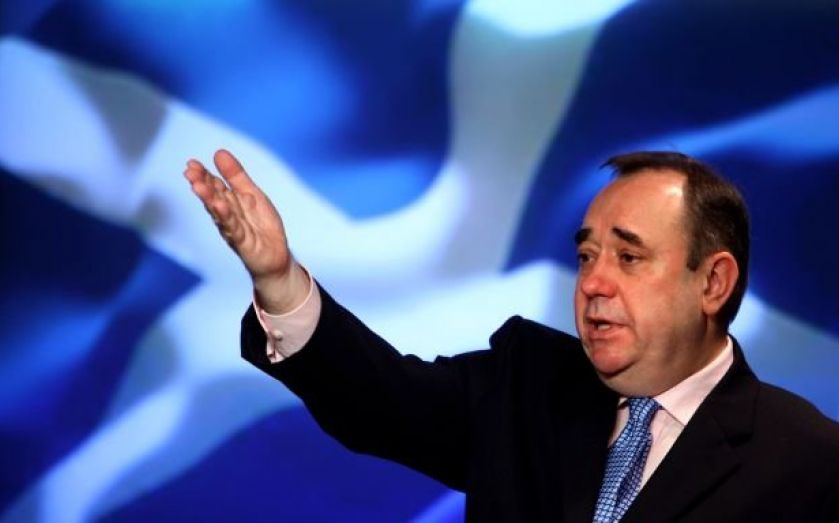Scottish independence: Half of English voters “want spending cuts in Scotland” if it votes no

English voters will get tough on Scottish public spending if September's referendum results in a no vote, according to a new poll from YouGov and university researchers.
If voters reject Alex Salmond's campaign for an independent Scotland, 56 per cent of English voters would support a crackdown on the amount of public money doled out in Scotland.
Scottish spending has long been a popular bugbear of English voters, who look on enviously at the country's massively subsidised university system and prescription drugs. Public spending in Scotland reached £10,317 per head in 2012-13 compared with the more modest UK average of £8,940.
Claims of generous public spending are often countered by independence supporters, who point out that cash from North Sea oil more than makes up for Scotland's generous spending levels.
The findings suggest England's three main political parties will be on the wrong side of voters if they keep their promise to keep funding Scotland through the current method known as the Barnett Formula.
If Scotland decides to head for the exit, English attitudes about sharing a currency could turn even frostier. Fifty-three per cent of English voters were against an independent Scotland sharing the pound, with 23 per cent saying they had no problem with Scots continuing to use sterling.
The 53 per cent might be disappointed to learn that if Scotland votes yes there is precious little they can do to stop Scots using sterling. An independent Scotland would be within its rights to declare sterling sole legal tender and borrow it on the financial markets to hold in reserve.
The results were seized on by Yes Scotland, with a spokesman commenting: "It is a real concern for a growing number of Scots that Scotland's budget is in Westminster's crosshairs and waiting to be slashed in the event of a No vote."
Yes campaigners argue that changes to Barnett formula will lead to cuts that affect the NHS and social services.
UKIP and Tory voters were the most enthusiastic to see a trimming of Scotland's share of the tax take, with 70 per cent supporting cuts after a no vote. However, English Labour and Lib Dem voters were also keen for spending restraint north of the border, with support for a more austere Scotland standing at 50 and 54 per cent respectively.
However, the English were much more willing to entertain the idea of the Scottish Parliament taking control if most of the taxes raised in Scotland. But when it came to the idea of Scottish MPs voting on English only issues, the voter were having none of it, with 62 per cent wanting to block MPs north of border voting on policies that only affect England like tuition fees.
While the English might be in favour of a tougher nosed approach to Scottish public spending, the survey also found strong opposition to a break up the 300 year old union, with 59 per cent of voters in England saying they wanted Scotland to stay.
Prof Roger Scully of Cardiff University's Welsh Governance Centre commenting on the survey said:
"It's interesting that while there is almost no difference in the views of people in England and Wales about what they wish to see happen in the Scottish referendum, there are clear differences in how people wish to see the aftermath dealt with.
"Put bluntly, the English are more inclined to want to play hard-ball with Scotland," he added.